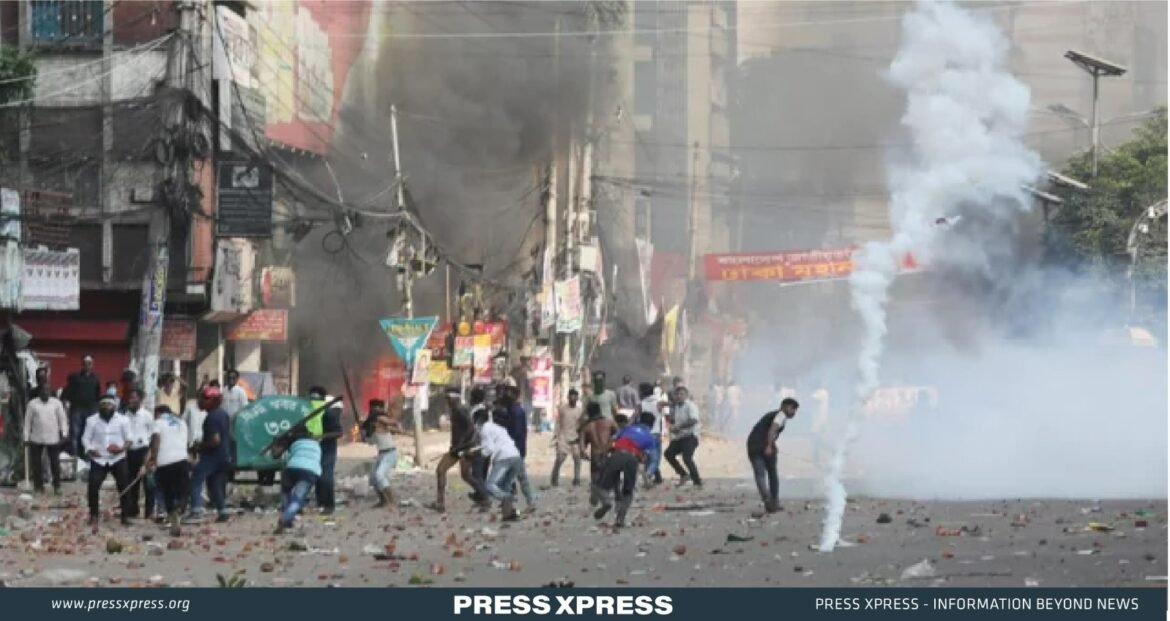Bangladesh Nationalist Party (BNP) is now planning to stage violent demonstrations in the name of sit-ins, after failing to gain people’s support in favour of its demand of a polls-time caretaker government through arson attacks to enforce its blockade programmes.
In addition to the ongoing hartal and blockade programmes, the party will stage sit-ins right after the announcement of the election schedule, according to a report published in The Daily Star.
You can also read: Members of European Parliament Urged to Condemn BNP Violence
BNP is now consulting its grassroots and like-minded parties on the next course of action.
No weekend break after Election schedule
Senior leaders of the party are not in favour of giving any weekend break in its political programmes after the announcement of the election schedule.
“Our movement will pick up pace soon after the Election Commission announces the election schedule. We may add on programmes like sit-ins,” said a standing committee member of the BNP on condition of anonymity.
According to sources from the Election Commission (EC), the election schedule could be announced between November 14 and 16.
BNP might call fresh hartals or blockades on Monday (November 13), but if the EC announces the election schedule on Tuesday, the party would add sit-ins to their protest programmes, according to senior leaders of the party.
Standing committee discusses strategy
The party during its standing committee meeting on November 8 analysed the ongoing blockade and discussed movement strategy.
A committee member said that their primary goal in enforcing the blockade programmes was to isolate Dhaka and they had been successful in achieving the goal in the last three phases of the blockade.
“The government would concede our demand for polls under a non-partisan interim government if this situation continues for a few more days as the economic and international pressure would be piling on,” said the standing committee member.
BNP relying heavily on foreign power
Senior leaders of BNP said the international communities are closely watching the situation, and it will not be possible for the government to hold elections without BNP like it did back in 2014.
The party has enforced either hartal or blockade every day since its rally on October 28 except the weekends.
The BNP on November 11 called a fresh 48-hour nationwide blockade that will end on November 14 morning. This is the fourth spell of blockades since October 31.
BNP atrocities centring previous national polls
Since 2009, BNP has developed a brand of politics characterised predominantly by extremely violent street protests targeting civilians and law enforcement officials. Since 2013, a newer dimension to the violence came in the form of petrol bombs and Molotov cocktail attacks on passengers in public transport.
In 2014, the BNP-Jamaat alliance let loose a reign of terror to resist the January 5 election of 2014, vandalising and torching hundreds of vehicles. According to media reports, as many as 200 people, including 20 law enforcers, were killed by their petrol bombs, handmade bombs and other sorts of violence.
On the day of the election, 26 people were killed, including a presiding officer, and 582 schools across the country that were serving as voting centres were torched by the BNP men. However, braving all obstacles, people exercised their voting rights and helped continue the democratic process.
From January 4, 2015, onward, BNP-Jamaat unleashed another reign of terror in the name of marking one year of the January 5 election, killing at least 231 people through arson and petrol bomb attacks and injuring over 1200 others.
Arson attacks were carried out to burn 2,903 cars, 18 rail carriages and eight passenger water vessels. Through targeted attacks, 70 government offices were vandalised and or destroyed and six land offices were burnt.
Prior to the 2018 general election also, supporters of BNP resorted to political violence. From December 9 to 12 a total of 47 such incidents of violence were reported, in which eight people were killed and 560 were injured, mostly from the ruling party.
Conclusion
the Bangladesh Nationalist Party (BNP) appears to be intensifying its protest strategies, transitioning from hartals and blockades to planning violent demonstrations following a lack of popular support for its demand of a polls-time caretaker government. The party’s senior leaders seem determined to maintain momentum even after the announcement of the election schedule, considering additional disruptive activities. The BNP is relying on economic and international pressure, anticipating that continued unrest may force the government to concede to its demand. The situation remains tense, and the international community is closely monitoring developments, highlighting the complex dynamics surrounding the upcoming elections in Bangladesh.


